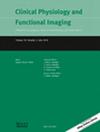The effect of eccentric arm cycling on muscle damage and injury-related biomarkers
Abstract
Purpose
There is a scarcity of information regarding the effect of upper-body eccentric exercise on biomarkers of muscle damage. This study sought to investigate the effect of eccentric arm cycling on muscle damage [exercise-induced muscle damage (EIMD)].
Method
Ten subjects performed a 15 min eccentric arm cycling protocol (cadence 49 ± 7 rpm, power absorbed 248 ± 34 W). Maximal voluntary contraction (MVC) of the elbow flexors was evaluated at rest and at 5 min, 24 h, and 48 h post-exercise. In addition, blood samples were drawn at rest and thereafter at 30 min, 24 h, and 48 h intervals after exercise for quantification of creatine kinase (CK), myoglobin, lactate dehydrogenase (LDH) and endothelin (ET-1) concentrations. Delayed onset muscle soreness (DOMS) was assessed using a category ratio scale (0–10).
Results
Myoglobin was increased from baseline at 30 min post-exercise (+114%, 46.08 ± 22.17 µg/L, p = 0.018). Individual peak values were higher than baseline values for CK (+72.8%, 204 ± 138 U/L, p = 0.046) and LDH (+17%, 3.3 ± 0.88 nmole/min/mL, p = 0.017), but not for ET-1 (+9%, 1.4 ± 0.48 pg/mL, p = 0.45). DOMS was reported at 24 h (median 4) and 48 h (median 4) post-exercise and MVC of the elbow flexors were reduced from baseline (216 ± 44 N) at 5 min (−34%, 147 ± 61 N, p < 0.001), 24 h (−17%, 181 ± 56 N, p = 0.005) and 48 h (−9%, 191 ± 54 N, p = 0.003).
Conclusion
Eccentric arm cycling incites EIMD with reduced MVC and elevation of myoglobin, CK and LDH.


 求助内容:
求助内容: 应助结果提醒方式:
应助结果提醒方式:


